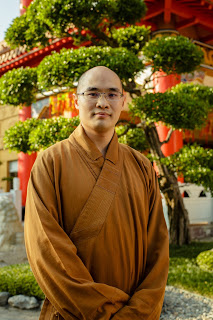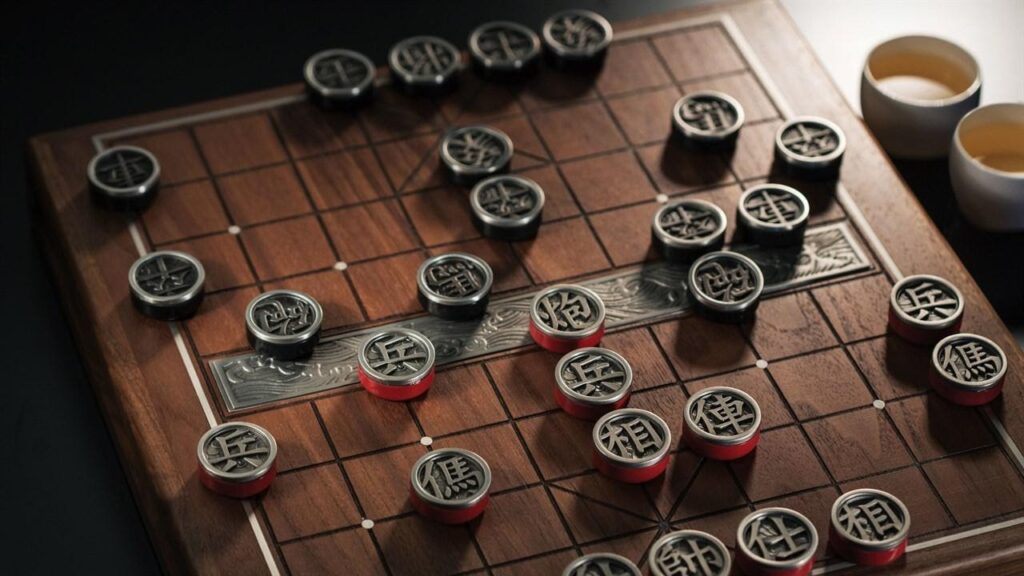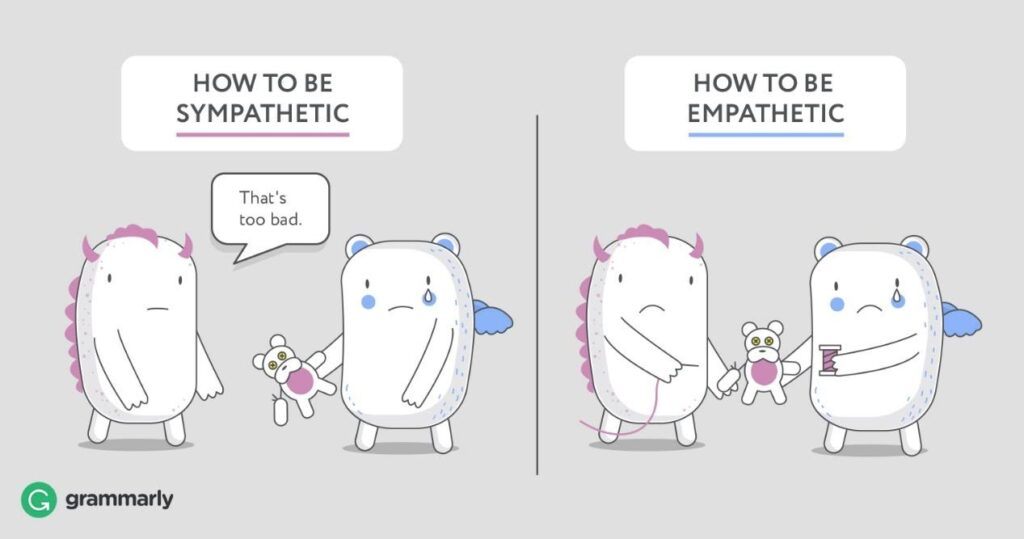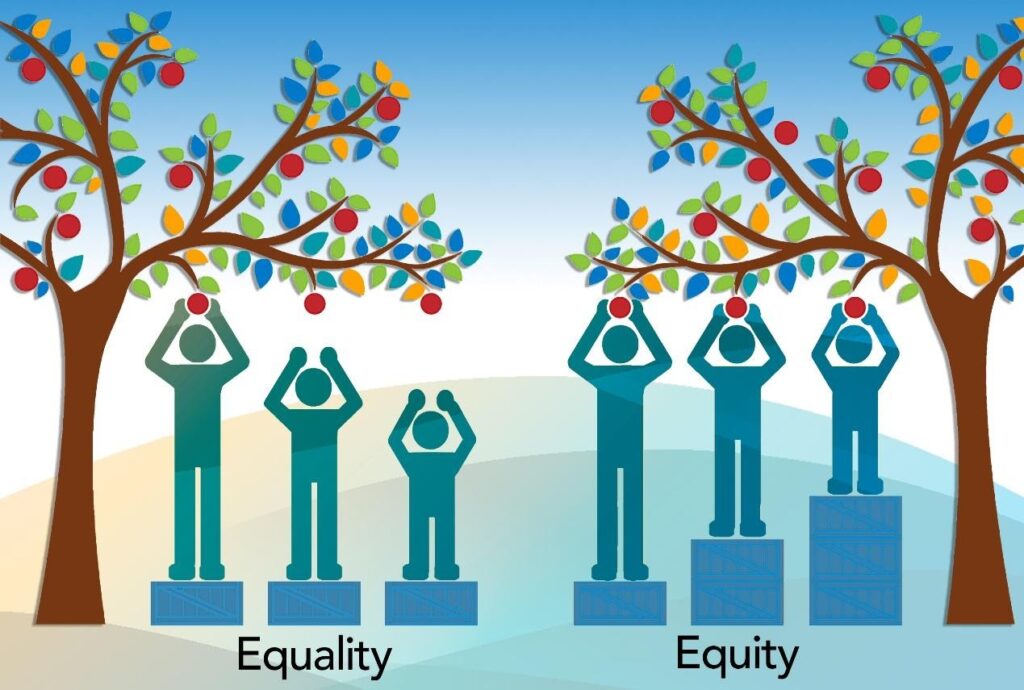
Speaker: Venerable Hui Cheng
Fo Guang Shan Executive Council
I. Introduction
Auspicious greetings to our friends around the world. This is Hui Cheng from Fo Guang Shan Monastery in Taiwan. I hope that this online session of Fo Guang Shan English Dharma Services finds you well.
Today, I would like to share with you my humble reflections on the practice of the Four Immeasurables. So, what are the Four Immeasurables? They are the active mental states of Loving kindness, Compassion, Appreciative Joy and Equanimity, or in other words, four attitudes we maintain towards others. They become Immeasurable when we extend such attitudes to all beings everywhere without differentiation or prejudice, be it our relatives, friends, acquaintances, strangers, or even our nemeses for that matter. Since we are also sentient beings, such attitudes need also be directed at oneself.
Many times, when we think of the Four Immeasurable States of Mind, several questions arise. Is it a meditative contemplation we engage in as we sit cross-legged in deep meditation to address negative mental states? Is it a state of meditative absorption one attains? Is it a state of mind we maintain throughout the day? Is it a multi-faceted Buddhist practice to be lived out amongst fellow human beings? In essence, all of the above is true. It is a practice to benefit both self and others, for only by giving the best of ourselves to others, do we truly experience joy.
II. What about “I”?
There is one underlying factor that makes the altruistic Four Immeasurable States either a strenuous mental workout or a walk in the park. That is, whether we have a correct understanding of “I” and “they”. In the Diamond Sutra, the Buddha expounds:
“And so, Subhūti, the bodhisattvas should not give rise to the aspiration while abiding in form.”
What this means is, when we aspire to follow the altruistic ways of the Buddha, it is paramount that we do not become attached to the notion of self, other and deeds. Knowing that all phenomena and beings are the culmination of myriad causes and conditions, we also know that nothing and no one independently exists. Since everything is fluid and changes according to the constantly evolving causes and conditions, we therefore know that the understanding of “I” is not as fixed and unchanging as we sometimes like to believe, and that nothing is utterly in our possession.
Knowingly, we will no longer see ourselves as the center of the universe and demand that things go our way, rather, we will work to support the causes and conditions required to accomplish our altruistic mission while not becoming attached to the process. Neither will we give rise to a mind of arrogance as we help others, nor become calculative when our generosity is not reciprocated or appreciated. When it is no longer only about the “I” and its selfish schemes and endeavors, we truly become selfless people who see that there is nothing to lose but everything to gain as we give the best of ourselves to others, however paradoxical it may seem to the untrained mind.

From a medical standpoint, practicing unconditional kindness, compassion, and appreciation makes one healthier and happier since maintaining such mental dispositions releases the natural feel-good hormones of oxytocin and endorphins. More so, human beings are genetically wired to be nice to one another. Kindness comes from our innate ability as a species to relate to one another socially, based on our need for a sense of belonging within a group. The less attached we are to our ego, the more we tend to be kind, and accepted by others.

As for our understanding of “they”, Venerable Master Hsing Yun emphasizes the importance of embracing the understanding of Oneness and Coexistence amongst all beings. Oneness refers to the fact that all beings share the same inherent Buddha-nature. This means that all beings, without exception, equally share the potentiality to become perfected beings while coexistence refers to the need to embrace the beautiful variety of the way beings manifest due to differences in causes and conditions. That said, although all beings appear differently in this world, we are inherently one. When we understand this, the practice of the Immeasurables become effortless.
The praxis of the Four Immeasurables is further elucidated by its alternative name, the Four Sublime Abodes. As the Metta Sutta expounds:
When standing, walking, sitting, lying down,
Whenever he feels free of tiredness
Let him establish well this mindfulness —
This, it is said, is the Sublime Abode.
This means that we should perpetually dwell in such states of mind that are pure, virtuous and free of attachments to the notions of “I”, “you” and “them”.
Let us have a look at each of the Immeasurables.
III. The Four Immeasurables
a. Loving kindness (maitrī or maitrā)
Loving kindness is an attitude of wishing all beings well, that they are joyful and happy, and have the causes for future happiness. Sutras liken this attitude to a mother’s well-wishes for her newborn child. She wishes that the child may enjoy good health, have good friends, be intelligent, and be successful in all that his/her attempts. Put simply, she genuinely wishes for the child to be happy. This attitude is extended to all beings without exception. It is not however, love based on attachment, for one loves all beings unconditionally.

b. Compassion (karuṇā)
Compassion is an attitude of wishing that all beings be free of suffering and sorrows, and free from the causes of future suffering. However, it is not pity since one sees all beings as equals without feeling superior to them.

c. Appreciative Joy (muditā)
Appreciative Joy is an attitude of rejoicing in the happiness and virtues of all sentient beings, as well as gratitude for what we have. However, it is not about comparison, about who is better than who, for one sees all beings as inherently equal, since we all have the same Buddha nature. In other words, all human beings have the same potential to be perfected human beings.

d. Equanimity (upekṣā)
Equanimity is the attitude of regarding all sentient beings as equals, irrespective of their present relationship to oneself, as well as seeing the oneness in all beings. It is also a wish that all beings develop equanimity themselves so that they are free of afflictions caused by a dualistic mind. However, equanimity is not indifference or apathy.
To recap, as long as one maintains a mind free of attachments to the notions of “I”, “you” and “they” when abiding in the Four Immeasurables, one’s mind becomes as vast as the universe capable of embracing all beings, as it is no longer bound by the fetters of our delusive understandings of self and other.
That said, it is inevitable that we have certain negative mental factors lying dormant in the depths of our mind which often go undetected, waiting for the right conditions to manifest as active mental states. To this end, the practice of the Immeasurables may address these. According to the Mahaprajnaparamita Sastra:
i. Loving kindness is practiced to remove hostility toward beings
ii. Compassion is practiced to remove harm and cruelty toward beings. (Indifference to the suffering of others is also considered cruelty.)
iii. Appreciative joy is practiced to remove dissatisfaction and jealousy toward beings
iv. Equanimity is practiced to remove clinging and aversion.

III. Going Beyond the Spiritual Workout
Although there is a large corpus of commentaries providing explanations of what the Four Immeasurables entail, historically, little has been mentioned about manifesting the sublime states of mind in our everyday lives through speech and action. To this end, Venerable Master Hsing Yun offers concrete guidelines, namely the Working Creed for Buddha’s Light Members: The Four Givings. Only by living out the states of mind, do we truly realize the utopian ideal of benefitting self and others.
The Four Givings are:
To give others faith;
To give others hope;
To give others joy;
To give others convenience.
Venerable Master explains that the Four Immeasurables correspond with the Four Givings. Immeasurable loving-kindness is to “give others faith;” immeasurable compassion is to give others hope;” immeasurable appreciative joy is to “give others joy;” and immeasurable equanimity is to “give others convenience.”
a. Giving others faith based on loving-kindness
Giving others faith based on loving-kindness is done proactively. We seek ways to boost the confidence of others, as when one feels good about themselves, one will tend be happy and healthy, and have self-confidence.
In his book Buddha Dharma: Pure and Simple, Venerable Master shares a story to illustrate the way to give others faith and confidence. During the late Qing Dynasty, there was a chess master who hung a plaque in front of his house that proclaimed “Unbeatable.” One day during an expedition, when Minister Zuo Zongtang passed by the chess master’s house and noticed the plaque, he decided to challenge the chess master and consequently defeated him thrice in a row. Smugly, the minister said, “You lost three times in a row! It’s time to take down that plaque!”

Several months later, Zuo returned victoriously and passed by the house again, only to see that the plaque was still there. In reply to the minister’s inquiry about why the plaque had not been removed, the chess master said, “May I invite you to another game?” This time, he defeated Zuo thrice in a row. The chess master then explained, “‘Last time you visited, I did not wish to demoralize you, for you were headed to a battle. Therefore, I intentionally lost the game. Now that you have returned victorious, I need no longer show you any mercy.”
The chess master knew when to win and when to lose. Indeed, he was a real chess master who was willing to give others confidence and faith.
In our daily lives, a lovely smile, an encouraging word, genuine praise, a little charitable service, a kind gesture, or simply giving our warm regards to others may brighten up their day and allow them to feel good about themselves, increasing their self-esteem. More importantly, in an increasingly challenging world we live in, being unconditionally kind to others inspires them to restore faith in humanity. Ultimately, to inspire people to develop faith in the truth of the universe, that is, to understand the law of causal existence, we have offered the best gift. Equipped with faith in such an understanding, one is empowered to take charge of one’s life by being mindful of one’s actions in the present moment. This is the true meaning of giving others faith.

b. Giving others hope based on a mind of compassion
In our everyday lives, there are many occasions to offer others hope. Venerable Master reminds that offering hope is the highest act of benevolence while to disappoint and render others hopeless is the cruelest act. However, giving others hope based on compassion requires insightful wisdom. In setting out to help others, we should see all beings as equals and not be condescending, while being receptive to their feelings. It is also important to address the underlying causes which call for our offering of hope. As the saying goes, “Give a man a carrot, and you feed him for a day. Teach a man to grow carrots, and you feed him for a lifetime”. As such, the best gift of hope is that of the Dharma, as it offers one an eternal refuge of hope.

The story of Purna, Buddha’s foremost disciple in teaching the Buddha Dharma, illustrates this point. Purna is remembered for his “boundless preaching and compassion”. He often found himself travelling to perilous lands where people needed help most, even if it meant risking his life. This is because Purna could not bear to see the suffering others. On one occasion, after asking the Buddha for permission, he left the Sangha and went to Sudana, a desolate and poor country with citizens who were violent and unrelenting.
With great resolve, Purna learned the native dialects of Sudana so that he would be able to communicate with its people. However, even after having gone to such extents, the natives were still wary of him for being a foreigner. Purna understood it was difficult to inspire the natives to develop faith in the Buddha Dharma, as their local cultures and belief systems were starkly different to that of Buddhism. Purna realized that it was imperative to first help improve their living standards if he were to show them the way out of suffering, so he started with treating the sick. More so, Purna worked on their literacy, and taught them the ways of farming and home economics. At night, he talked to the natives about the Five Precepts and the Law of Cause and Effect. Slowly but inevitably, the natives took refuge in the Buddha, Dharma and Sangha, changed their ways, and lived a life free of suffering.

From this story, we see Purna’s immeasurable and selfless compassion. He did not choose who he helped, and no matter how difficult the situation, remained patient. He gave others hope by showing the citizens the way out of their uncivilized darkness by empowering them to live life well. Most importantly, he taught them the Dharma, the ultimate source of sustained hope.
In our daily lives, it is inevitable that we meet with people who are going through the trials and tribulations of life with much suffering. During times like these, it is crucial to be mindful of the situation, and offer hope in an empathetic and inspiring manner. Apart from assisting with the practicalities of life, guiding others to see the impermanence of their situation is perhaps the most effective way to inspire hope, as when one see’s the fluid nature of suffering, one will see the light at the end of the tunnel.
c. Giving others joy based on a mind of appreciative joy
Sharing joy with others is not only a virtue, it is also a delightful experience. When someone sets out to do virtuous deeds, words of encouragement may go a long way. More so, supporting them in their cause is a way to add to their joyous deeds. The true meaning of giving others joy based on a mind of appreciative joy is to acknowledge and support their deeds which encourages them to be ever more so selfless. This is because true Dharma joy is only found when one gives the best of themselves to others.
The joy of selflessness can spread like wildfire. We frequently come across news of generous people engaging in a benevolent act and receiving the praise and support of the public. In response to the plight of people self-isolating during the coronavirus pandemic, Becky Wass, a copywriter from Cornwall of the UK came up with the idea of creating shareable postcards stating “Hello! If you are self-isolating, I can help,” that allowed people to offer help to their elderly or vulnerable neighbors. Ever since, the cards have been printed and shared all over the world, allowing joy to spread throughout.

As such, in a world of polarities and vested interests, giving others joy based on appreciative joy is perhaps the fastest way to achieve the utopian ideal of a peaceful society.
d. Giving others convenience based on a mind of equanimity
Giving others convenience based on the mind of equanimity means to offer others an equal chance at succeeding. To do this, we see all beings as inherently equal while at the same time, acknowledging the differences in the way sentient beings manifest themselves due to different causes and conditions. In accordance to those differences, we do what is necessary to see to it that all beings have an equal opportunity to succeed.
According to Venerable Master Hsing Yun, “equality means that everyone has the same beginning and stands at the same level. This does not necessarily mean that everyone should be at the same height! What does it mean to have the same beginning? For example, a child can only lift five pounds, but an adult can easily lift fifty. Letting a child start with five pounds and an adult with fifty pounds is an example of equality at different levels.”
In a sense, equality here refers to universal potentiality and equal access, while the catering for individual differences is equity. For example, Venerable Master’s Seeds of Hope Project has helped many underprivileged students gain equal access to education. This is equality. Though, accelerated learning programs for gifted students would be considered equity. Such an approach will allow all beings to achieve their own fullest potential.

In practice, one could offer others convenience by doing things as simple as keeping public toilets sanitary so that everyone has equal access to the comfort found in it’s cleanliness, or vacating a seat on the bus for someone who needs it more than we do. It is refraining from hoarding at supermarkets even if products are on special so that everyone has their fair share. It also means employing expedient means to share the Dharma with others according to their inclinations and tendencies, in order to provide equitable access to the good way of life.
IV. Conclusion
To wrap up, let us mindfully abide in the Four Immeasurables free of attachments to the notions of “I” and “they”. Let us go beyond the spiritual workout and manifest such virtuous states of mind in our daily lives through the practice of the Four Givings.
May we dedicate the merits of this session by joining our palms, settling our thoughts, and wishing that all beings be happy, healthy, free from suffering, and equanimous in mind. Finally, thank you for joining us in this cultivation session. If you find this Dharma service helpful to your practice, please subscribe to the FGS English Dharma Services YouTube Channel and share it with your friends.
May Buddha bless you and your family. See you next week. Omituofo.
